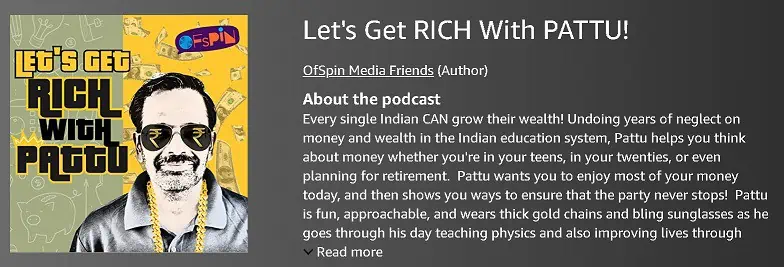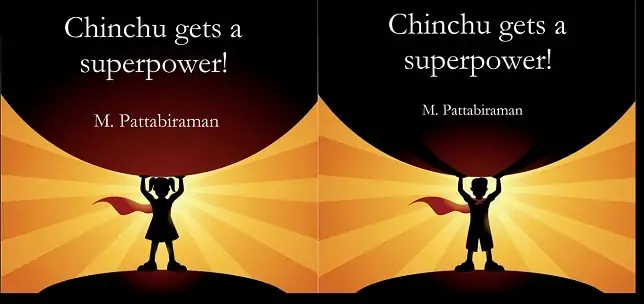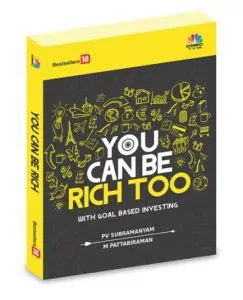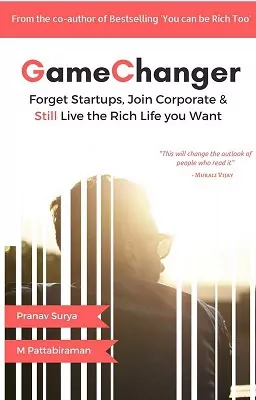Last Updated on January 21, 2022 at 8:49 pm
How should funds in EPF be handled If we wish to quit our job and become self-employed or resign a few years before normal retirement or wish to retire earlier? Should we leave the EPF funds as is or should we withdraw? If we withdraw what are the alternative investment options?
About the author: Sriram Jayaraman is a SEBI registered fee-only Investment adviser. After 27 years of working in large IT companies in India, he achieved financial independence and retired early to become a fee-only advisor. You can contact Sriram via his website arthagyan.com. Previous article by Sriram: How to use MF, stock losses to reduce your tax burden (tax-loss harvesting) and 11 Investment mistakes newbies should avoid in 2020!
This article stems from a question by Gunesh Apte, who wanted to know where to invest such withdrawn EPF funds. Sriram will discuss withdrawing from EPF vs staying invested (in case of early retirement) in this article and discuss alternative options in detail in the second part. Regulars reader may be aware that he has already written about a similar topic: How should senior citizens invest in 2020.
Let us first understand the basics. EPF is Employee provident fund. This is managed by Employee Provident Fund Organization (EPFO) which falls under the Ministry of Labour & Employment of the Government of India. It was formed by the EPF Act in 1952. The objective of EPFO is to enable employees of the organized sector to save for life after retirement. The employee contributes 12% of salary (basic + dearness allowance) and the employer contributes a matching amount towards EPF.
Join 32,000+ readers and get free money management solutions delivered to your inbox! Subscribe to get posts via email! (Link takes you to our email sign-up form)
🔥Want to create a complete financial plan? Learn goal-based investing? Exclusive access to our DIY tools? Increase your income with your skills? Enjoy massive discounts on our robo-advisory tool & courses! 🔥
The breakup of the employer contribution is 8.33% with a cap of Rs. 1,250 is towards EPS (Employee pension scheme) and the rest goes into the EPF kitty. The EPF interest rate is decided by the Govt of India together with the Central Board of Trustees (CBT). There is no interest on the EPS contribution. The EPF can be withdrawn by the employee when the employee retires or is not in employment for a minimum period of 2 months or if the employee moves abroad or when the employee is dead.
The EPS needs to be withdrawn if the employee has not completed 10 years of service. EPS cannot be withdrawn on completion of 10 years of services, instead, a pension is payable to the EPS account holder after 58 years of age. There are rules on how the pension is calculated. The EPS is designed for low-income earners. EPS pension could at best be pocket money for high-income earners. EPF is managed by Trusts under directives from EPFO.
There are several Private trusts which manage EPF money of employees of large organizations. There are specific rules which need to be followed by the private EPF Trusts regarding instruments to be invested in. The interest needs to be paid as per the directive from EPFO.
Why is EPF a very attractive long term savings option? EPF falls under the EEE category of investment. The first E stands for exemption from income tax under section 80C up to Rs. 1,50,000 per annum. The second E stand for exemption from income tax for the interest credited to the EPF account every year.
The third E stand for exemption from income tax at withdrawal (after completion of 5 years of contributions). The interest rate paid on EPF is normally higher than Fixed deposit interest rates. This EEE treatment for EPF makes it a very attractive option for the debt portion of your savings.
The tax-free status of EPF is however only applicable when you are working and contributing. Once you quit working, the interest earned is taxable. There is a judgement from ITAT (Income Tax Appellate Tribunal) which ruled that any interest credited to EPF account post-retirement of an employee is taxable in the year that it was received.
Should you withdraw your EPF after quitting your full time job? Now it is clear that EPF is taxable once you quit your job to either to start a business or for retirement. The interest offered by EPF is 8.5% for the last year. The current year may be lower than this. However, it is still much higher than the Fixed deposit interest offered by PSU banks and large private banks. You can consider to hold the EPF even if it is taxable.
When will my EPF account become inoperative? The EPF rules say that the interest will not be credited from the date on which it has become “Inoperative”. So it is significant to understand the rules when an account becomes inoperative. This is the official EPF scheme documentation.
The provisions of subparagraph 6 of paragraph 72 gives these rules. This can be found on page 80/81 of the scheme documentation. I find this to be quite unclear. Maybe you can read it and understand it better! I understand the below:
- For a person who retires from service after attaining the age of 55, he/she has a period of 36 months to withdraw the balance
- For a person who has migrated abroad permanently, there is a period of 36 months to withdraw the balance.
- For a deceased person, his/her family has a period of 36 months to withdraw the balance
- There is no mention of a person who has retired before the age of 55. So it is not clear from the scheme document how the EPFO operations will differentiate between a person who has migrated abroad, a person who is deceased and a person who has quit his/her job before the age of 55. All the EPFO operations will know is that the person has stopped contributing to the account. There is no way EPFO operation can know this when you have not informed them.
- There is another twist to this. A document downloaded from the EPF portal says (page 5), “So members who are leaving service before 55 years of age should file claims maximum by the age of 58 years to not lose any interest. Members who have retired after 55 years of age should file claim maximum within the next three years.”
- This clearly says that for anyone quitting job before the age of 55, can withdraw the balance before age of 58, he/she will receive all the interest till withdrawal
Takeaway: After you quit your full-time job, you get 36 months to withdraw your balance. During this period, the interest will be paid and it will be taxable. You can choose to withdraw it 2 months after quitting your job as well; it is your choice. After 36 months, if the account becomes “inoperative” and interest is not credited, then you can follow-up with an email to [email protected]. If you are informed that your account is now “inoperative”, then you should file a claim and withdraw your EPF balance.
Acknowledgement: Thanks to Srikanth Reddy article on this issue.
🔥Enjoy massive discounts on our courses, robo-advisory tool and exclusive investor circle! 🔥& join our community of 7000+ users!
Use our Robo-advisory Tool for a start-to-finish financial plan! ⇐ More than 2,500 investors and advisors use this!
Track your mutual funds and stock investments with this Google Sheet!
We also publish monthly equity mutual funds, debt and hybrid mutual funds, index funds and ETF screeners and momentum, low-volatility stock screeners.





- Do you have a comment about the above article? Reach out to us on Twitter: @freefincal or @pattufreefincal
- Have a question? Subscribe to our newsletter using the form below.
- Hit 'reply' to any email from us! We do not offer personalized investment advice. We can write a detailed article without mentioning your name if you have a generic question.
Join 32,000+ readers and get free money management solutions delivered to your inbox! Subscribe to get posts via email! (Link takes you to our email sign-up form)
About The Author
 Dr M. Pattabiraman(PhD) is the founder, managing editor and primary author of freefincal. He is an associate professor at the Indian Institute of Technology, Madras. He has over ten years of experience publishing news analysis, research and financial product development. Connect with him via Twitter(X), Linkedin, or YouTube. Pattabiraman has co-authored three print books: (1) You can be rich too with goal-based investing (CNBC TV18) for DIY investors. (2) Gamechanger for young earners. (3) Chinchu Gets a Superpower! for kids. He has also written seven other free e-books on various money management topics. He is a patron and co-founder of “Fee-only India,” an organisation promoting unbiased, commission-free investment advice.
Dr M. Pattabiraman(PhD) is the founder, managing editor and primary author of freefincal. He is an associate professor at the Indian Institute of Technology, Madras. He has over ten years of experience publishing news analysis, research and financial product development. Connect with him via Twitter(X), Linkedin, or YouTube. Pattabiraman has co-authored three print books: (1) You can be rich too with goal-based investing (CNBC TV18) for DIY investors. (2) Gamechanger for young earners. (3) Chinchu Gets a Superpower! for kids. He has also written seven other free e-books on various money management topics. He is a patron and co-founder of “Fee-only India,” an organisation promoting unbiased, commission-free investment advice.Our flagship course! Learn to manage your portfolio like a pro to achieve your goals regardless of market conditions! ⇐ More than 3,000 investors and advisors are part of our exclusive community! Get clarity on how to plan for your goals and achieve the necessary corpus no matter the market condition is!! Watch the first lecture for free! One-time payment! No recurring fees! Life-long access to videos! Reduce fear, uncertainty and doubt while investing! Learn how to plan for your goals before and after retirement with confidence.
Our new course! Increase your income by getting people to pay for your skills! ⇐ More than 700 salaried employees, entrepreneurs and financial advisors are part of our exclusive community! Learn how to get people to pay for your skills! Whether you are a professional or small business owner who wants more clients via online visibility or a salaried person wanting a side income or passive income, we will show you how to achieve this by showcasing your skills and building a community that trusts and pays you! (watch 1st lecture for free). One-time payment! No recurring fees! Life-long access to videos!
Our new book for kids: “Chinchu Gets a Superpower!” is now available!


Must-read book even for adults! This is something that every parent should teach their kids right from their young age. The importance of money management and decision making based on their wants and needs. Very nicely written in simple terms. - Arun.Buy the book: Chinchu gets a superpower for your child!
How to profit from content writing: Our new ebook is for those interested in getting side income via content writing. It is available at a 50% discount for Rs. 500 only!
Do you want to check if the market is overvalued or undervalued? Use our market valuation tool (it will work with any index!), or get the Tactical Buy/Sell timing tool!
We publish monthly mutual fund screeners and momentum, low-volatility stock screeners.
About freefincal & its content policy. Freefincal is a News Media Organization dedicated to providing original analysis, reports, reviews and insights on mutual funds, stocks, investing, retirement and personal finance developments. We do so without conflict of interest and bias. Follow us on Google News. Freefincal serves more than three million readers a year (5 million page views) with articles based only on factual information and detailed analysis by its authors. All statements made will be verified with credible and knowledgeable sources before publication. Freefincal does not publish paid articles, promotions, PR, satire or opinions without data. All opinions will be inferences backed by verifiable, reproducible evidence/data. Contact information: To get in touch, use this contact form. (Sponsored posts or paid collaborations will not be entertained.)
Connect with us on social media
- Twitter @freefincal
- Subscribe to our YouTube Videos
- Posts feed via Feedburner.
Our publications
You Can Be Rich Too with Goal-Based Investing
 Published by CNBC TV18, this book is meant to help you ask the right questions and seek the correct answers, and since it comes with nine online calculators, you can also create custom solutions for your lifestyle! Get it now.
Published by CNBC TV18, this book is meant to help you ask the right questions and seek the correct answers, and since it comes with nine online calculators, you can also create custom solutions for your lifestyle! Get it now.Gamechanger: Forget Startups, Join Corporate & Still Live the Rich Life You Want
 This book is meant for young earners to get their basics right from day one! It will also help you travel to exotic places at a low cost! Get it or gift it to a young earner.
This book is meant for young earners to get their basics right from day one! It will also help you travel to exotic places at a low cost! Get it or gift it to a young earner.Your Ultimate Guide to Travel
 This is an in-depth dive into vacation planning, finding cheap flights, budget accommodation, what to do when travelling, and how travelling slowly is better financially and psychologically, with links to the web pages and hand-holding at every step. Get the pdf for Rs 300 (instant download)
This is an in-depth dive into vacation planning, finding cheap flights, budget accommodation, what to do when travelling, and how travelling slowly is better financially and psychologically, with links to the web pages and hand-holding at every step. Get the pdf for Rs 300 (instant download)